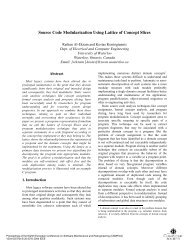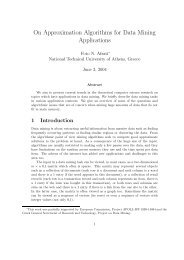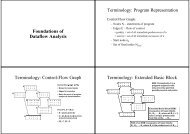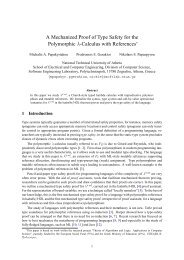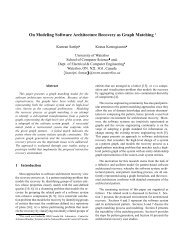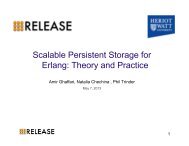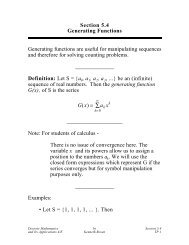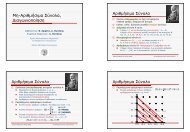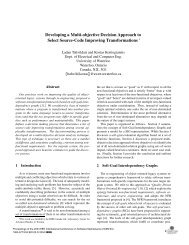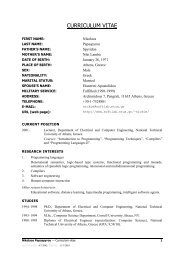Manual
Manual
Manual
You also want an ePaper? Increase the reach of your titles
YUMPU automatically turns print PDFs into web optimized ePapers that Google loves.
112 Bison 2.3<br />
{<br />
}<br />
yyparse ("input");<br />
yyparse ("input");<br />
return 0;<br />
If the file ‘input’ contains<br />
input:1: Hello,<br />
input:2: World!<br />
then instead of getting the first line twice, you get:<br />
$ flex -ofirst-line.c first-line.l<br />
$ gcc -ofirst-line first-line.c -ll<br />
$ ./first-line<br />
input:1: Hello,<br />
input:2: World!<br />
Therefore, whenever you change yyin, you must tell the Lex-generated scanner to discard<br />
its current buffer and switch to the new one. This depends upon your implementation of<br />
Lex; see its documentation for more. For Flex, it suffices to call ‘YY_FLUSH_BUFFER’ after<br />
each change to yyin. If your Flex-generated scanner needs to read from several input<br />
streams to handle features like include files, you might consider using Flex functions like<br />
‘yy_switch_to_buffer’ that manipulate multiple input buffers.<br />
If your Flex-generated scanner uses start conditions (see section “Start conditions” in<br />
The Flex <strong>Manual</strong>), you might also want to reset the scanner’s state, i.e., go back to the<br />
initial start condition, through a call to ‘BEGIN (0)’.<br />
11.3 Strings are Destroyed<br />
My parser seems to destroy old strings, or maybe it loses track of<br />
them. Instead of reporting ‘"foo", "bar"’, it reports<br />
‘"bar", "bar"’, or even ‘"foo\nbar", "bar"’.<br />
This error is probably the single most frequent “bug report” sent to Bison lists, but is<br />
only concerned with a misunderstanding of the role of the scanner. Consider the following<br />
Lex code:<br />
%{<br />
#include <br />
char *yylval = NULL;<br />
%}<br />
%%<br />
.* yylval = yytext; return 1;<br />
\n /* IGNORE */<br />
%%<br />
int<br />
main ()<br />
{<br />
/* Similar to using $1, $2 in a Bison action. */<br />
char *fst = (yylex (), yylval);



